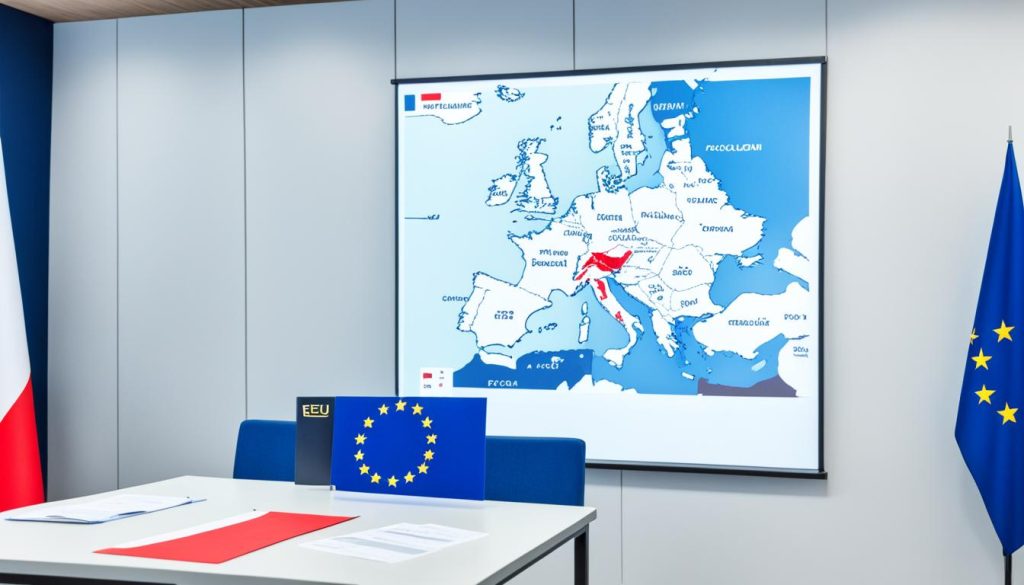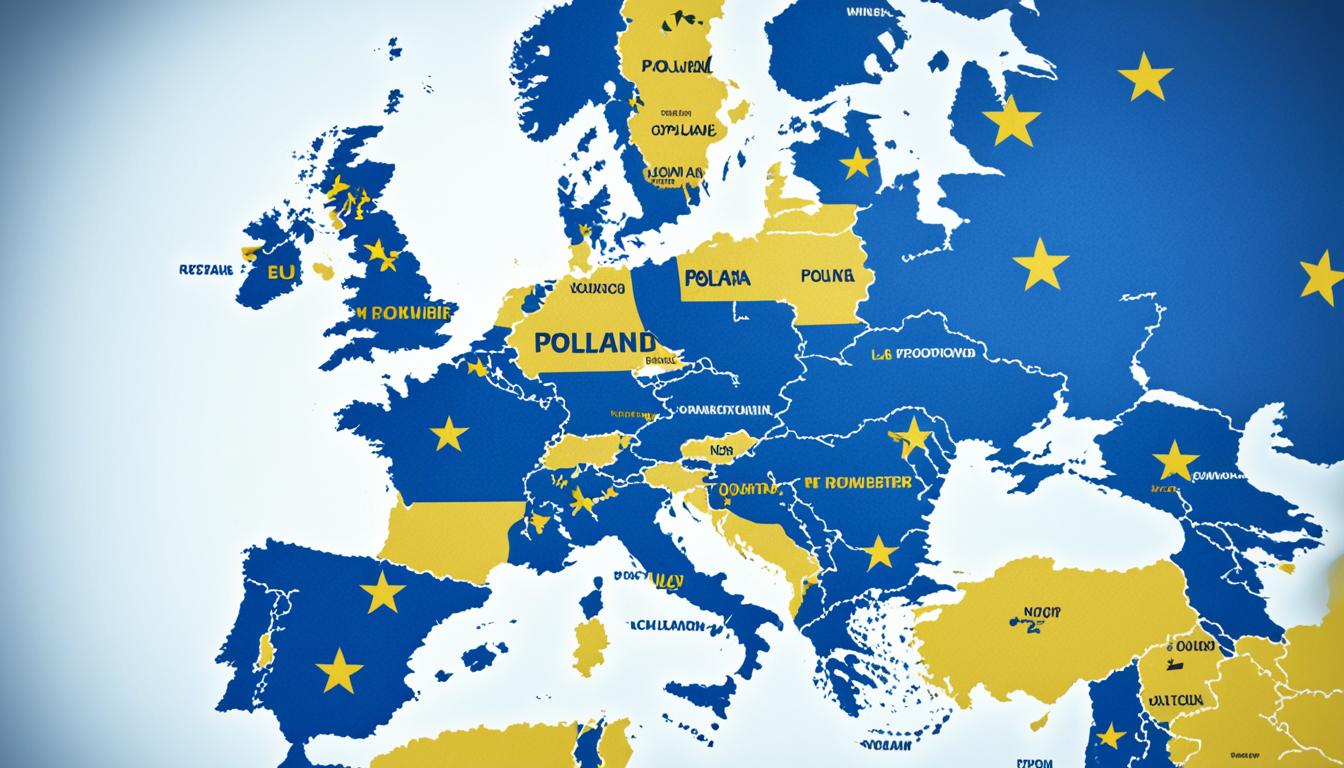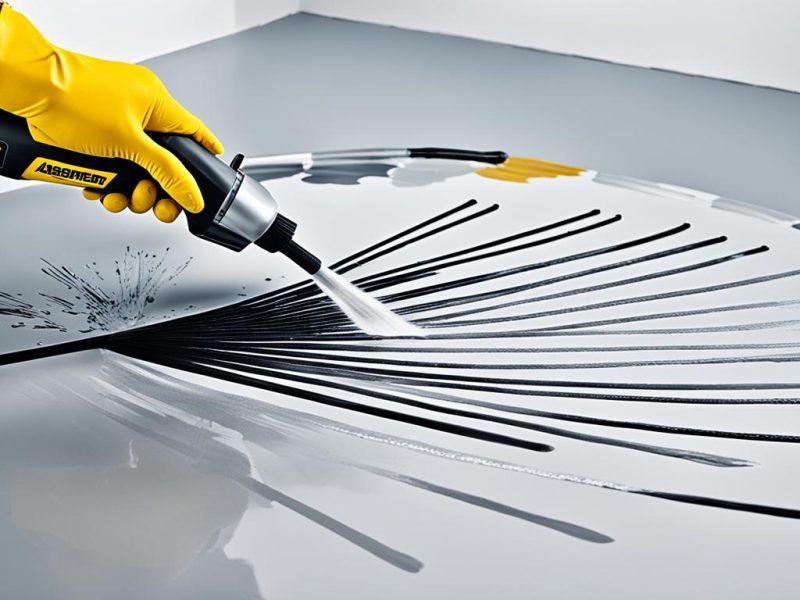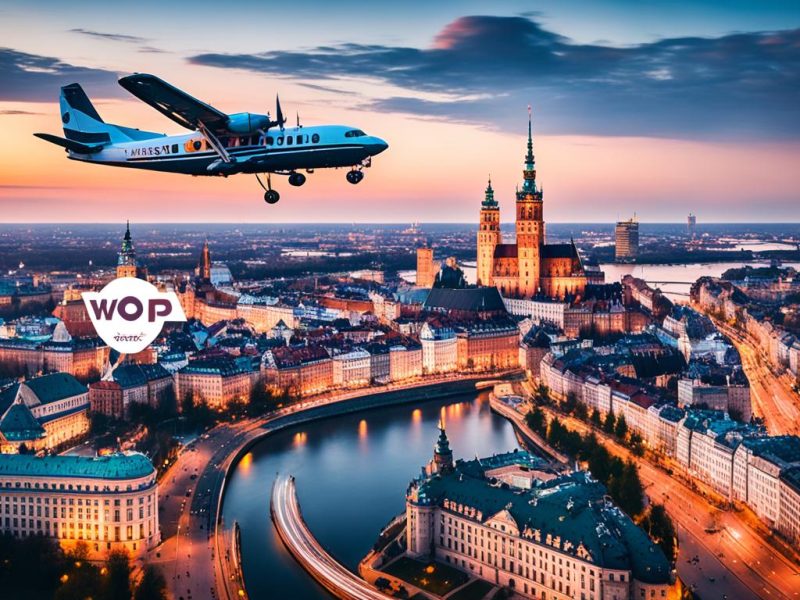People often wonder if Poland is a part of the European Union. Yes, Poland is a member of this unique group of EU nations. It joined with full rights and duties. Located in Central Europe, Poland shows its major changes and growing role in Europe by being part of the EU. Since joining the Union, Poland has become key in regional trade, improving security, and making it easier for people and goods to move freely.
Key Takeaways
- Poland is a fully-fledged member of the European Union, with its accession reinforcing the integration of European Union countries.
- The country’s EU membership has been crucial for its development, touching on aspects of trade, travel, and policy initiatives.
- Poland’s EU status is pivotal, with the nation frequently contributing to discussions on European Union governance and strategy.
- EU member states, including Poland, are bound by a shared commitment to the principles and values that underpin the Union.
- Understanding Poland’s journey within the EU illuminates the broader narrative of European integration and cooperation.
Poland’s Journey to European Union Membership
Poland’s path to joining the European Union shows its dedication to being a part of Europe. The country went through many changes to meet EU standards. These efforts changed how Poland is seen around the world and improved its society and economy.
The Application Process and Accession
The road to the EU for Poland was filled with detailed talks and the adoption of European standards. The application sent in 1994 was a key step. It showed Poland wanted to rebuild connections with Europe after years under Soviet control. To meet EU demands, Poland made big changes, leading to signing the Accession Treaty in Athens on 16 April 2003. This event started Poland’s EU membership in May 2004.

Reforms and Treaty Conditions
Poland had to meet many EU treaty conditions to join. It changed its economy and politics to fit EU rules. This was to show Poland’s commitment to being stable and competitive in the EU.
Impact of Joining the EU on Poland
Being in the EU has helped Poland grow economically and attract foreign investments. The country has seen improvements in infrastructure. Also, EU funds have modernised many areas, making life better for people.
Joining the EU was a major milestone for Poland. It marks Poland’s successful effort to meet EU standards and shows how EU membership can help a country grow and integrate into Europe.
Current Membership and Contributions to the EU
Poland is making big strides in EU integration. It’s working hard to shape the Union’s future. Poland is not just about meeting goals, but its efforts in policy and finances are noteworthy. A look at Poland’s contribution to the EU budget shows its strong commitment to European solidarity.
In policy-making, Poland’s active role is clear. It shows a willingness to work together for better decisions. This cooperation is all about facing challenges together, for the good of all EU countries.
- Active involvement in shaping EU agricultural policies
- Collaboration on environmental initiatives and sustainability directives
- Advancement of digital transformation strategies within the EU framework
Being part of the Schengen Area shows Poland’s integration in Europe. Schengen Area involvement brings economic gain and free movement. It also shows Poland’s belief in EU’s core freedoms.
Financially, Poland benefits more from the EU. It receives funds for growth and better living standards. Below is a summary of Poland’s financial dealings with the EU:
| Year | Contribution to EU Budget | EU Funds Received | Net Position |
|---|---|---|---|
| 2021 | €3.8 billion | €13.5 billion | +€9.7 billion |
| 2020 | €3.5 billion | €12.8 billion | +€9.3 billion |
| 2019 | €3.3 billion | €11.6 billion | +€8.3 billion |
This table shows more than numbers. It reflects Poland’s growing influence in the EU. Poland is not just receiving; it’s actively contributing to our collective goals and values.
Is Poland in the EU?
Poland’s membership in the EU is central to Europe’s unity. It plays a key role in regional teamwork and law harmony.
Understanding the EU’s Framework and Member States
The EU is made up of legal and political parts that help countries work well together. Institutions like the European Parliament and European Commission are key. They aim to keep unity and respect each country’s uniqueness.
Poland’s Role and Influence within the European Union
Since joining the EU, Poland has become more influential. It works on economic reform and helps shape the EU’s future. Poland’s efforts impact agriculture and digital sectors greatly.
EU Policies and Legislation: Poland’s Compliance and Challenges
Following EU laws offers Poland both chances and hurdles. It needs to match its laws with Europe’s to stay strong in the Union. This helps in promoting growth and the rule of law.
Ensuring legislation compliance:
- Transposition of EU directives into national law
- Regular assessments of the legal framework
- Collaboration with EU institutions
Challenges faced by Poland:
- Critical debates on judicial reforms
- Efforts to meet environmental directives
- Dialogue on socio-political changes
| EU Policy Field | Poland’s Commitment | Challenges |
|---|---|---|
| Environment | Implementation of green initiatives | Industrial transformation |
| Digital Single Market | Fostering digital economy | Infrastructure and investment |
| Justice and Home Affairs | Strengthening legal cooperation | Ensuring judicial independence |
Conclusion
Summing up Poland’s journey in the EU shows how key it has been for both its growth and Europe’s unity. Poland has gained a lot from being in the EU, like financial help and a say in politics. It has also played a big part in shaping EU policies and structure. This step into the European community has shown a strong will to grow together and share common values, making the EU stronger.
There’s much talk about the EU getting bigger in the future. Poland’s journey is a great example for countries thinking of joining. It shows how being part of the EU can change a country for the better and bring Europeans closer. Keeping the EU united is very important. Poland is at the heart of this mission, working to reach the Union’s goals while keeping all countries working together smoothly.
This story isn’t just about Poland being in the EU. It also highlights the deep and varied connections between countries in the Union. As time goes on, how Poland fits into the EU will keep changing. This reflects the constant changes in Europe’s political, economic, and social scene. Together, they shape the future of this special partnership between nations.
FAQ
Is Poland a member of the European Union?
Yes, Poland became a part of the European Union on 1 May 2004. It met tough conditions to join, like democratic institutions, rule of law, and reforms. This big step followed a successful application and matching EU standards.
What were the key factors that enabled Poland to join the EU?
Poland joined the EU by following detailed steps. It showed it had a stable government, respected human rights, and could handle competition in the market. Important reforms and adopting EU laws were key.
How has Poland’s integration into the EU affected the country?
Since joining the EU, Poland has seen its economy grow and more jobs created. It has attracted foreign investment and improved its infrastructure.
Polish people now enjoy more freedom to travel in Europe. They also benefit from EU funds for projects.
What is Poland’s contribution to the EU budget and what does it receive in return?
Poland pays into the EU budget as required. In return, it gets help with social and development projects, farming, and fixing roads among others. Poland gains more from the EU budget than it pays, supporting its growth.
How does Poland participate in the EU policy-making process?
As an EU member, Poland helps make European laws. It works with the European Parliament, the Council of the European Union, and the European Commission. Poland is strongly involved in policies about the environment, justice, and safety.
What is the Schengen Area and is Poland a part of it?
The Schengen Area makes travel easy between EU countries without needing a passport. Poland joined this area on 21 December 2007. This lets Polish people travel freely across many European countries.
Are there any challenges Poland faces in complying with EU legislation?
Poland, like others, finds it hard at times to follow all EU laws. Changing national laws to fit EU standards is challenging. Topics of debate include judges’ independence, press freedom, and protecting the environment.
What impact does Poland’s EU membership have on its international policy?
Being in the EU has changed Poland’s role in the world. It coordinates its policies with other EU countries now. This covers foreign policies, trade deals, and strategic plans. Poland helps shape the EU’s actions in the world.
Can Poland influence EU policy changes?
Yes, Poland can influence EU policies. It has a say in discussions and decisions in EU bodies. Poland proposes laws, works with other countries, and impacts choices through its MEPs.
What are the long-term prospects for Poland within the EU?
Poland’s future in the EU looks bright. Economic and political stability will boost its role. Keeping up with EU laws, especially on sensitive reforms, is vital. Poland’s involvement in EU expansion talks will also be key.



